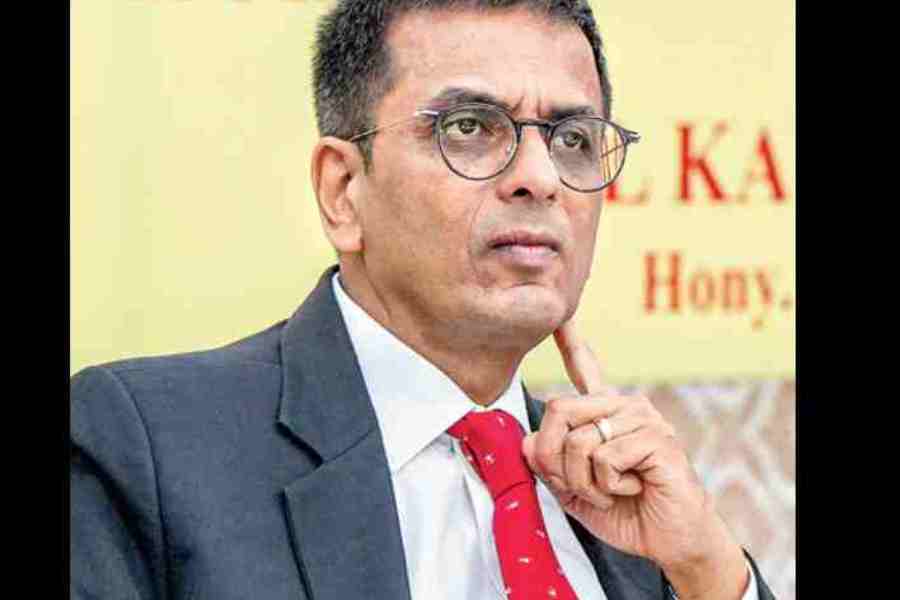Chief Justice of India D.Y. Chandrachud on Tuesday said the greatest challenge before the Indian judiciary was to eliminate the barriers to accessing justice and make sure that the judiciary was inclusive and accessible to the last person in the line.
He said there was a need to overhaul the infrastructure on a priority basis to make courts accessible and inclusive.
Speaking at the Independence Day celebrations organised by the Supreme Court Bar Association (SCBA) at the apex court lawns, the CJI said the aim was to create a judicial system which was more accessible and cost-effective for the people and that the full potential of technology had to be tapped to overcome the procedural barriers to justice.
While referring to Narendra Modi’s speech at the Red Fort, Justice Chandrachud said the Prime Minister had mentioned the apex court’s efforts to translate judgments into Indian languages.
The CJI said till now, 9,423 judgments of the top court had been translated into regional languages.
Besides the CJI, Union law minister Arjun Ram Meghwal, other judges of the apex court, attorney-general R. Venkataramani, SCBA office-bearers, including its president and senior advocate Adish C. Aggarwala and secretary Rohit Pandey, were present at the programme.
Justice Chandrachud said over 19,000 cases had been disposed of by the top court between March and June this year.
“As I look to the future, I believe the greatest challenge before the Indian judiciary is to eliminate the barriers to accessing justice,” he said.
“We have to enhance access to justice procedurally by eliminating the constraints which prevent citizens from approaching courts and substantively, by building confidence in the courts’ ability to dispense justice, and we have a road map in place to make sure that the future of Indian judiciary is inclusive and accessible to the last person in the line,” the CJI said.
He also spoke about the plan to expand the apex court by constructing a new building to accommodate 27 additional courts, four registrar courtrooms and adequate facilities for lawyers and litigants.
He said that to make the courts accessible and inclusive, “we need to overhaul our court infrastructure on a priority basis”.
Justice Chandrachud said the emphasis on modernising the judicial infrastructure to meet the challenges of the future was key to this mission. On the use of technology in the judicial process, the CJI said it was the best tool to eliminate inefficiency.
“We have to tap into the full potential of technology to overcome procedural barriers to justice. In pursuance of this, we are implementing phase three of the e-courts project,” he said.
Justice Chandrachud said phase three of the e-courts project had received a budgetary sanction of Rs 7,000 crore from the Centre and it sought to revolutionise the working of courts by inter-linking all courts across the country, setting up infrastructure of paperless courts, digitisation of court records and setting up of advance e-sewa kendras in all court complexes.
“Our aim is to create a judicial system that is more accessible, cost-effective and affordable for every individual who seeks justice. We are already striving to make the court premises and court services disabled-friendly,” Justice Chandrachud said.
The CJI spoke about the efforts of the apex court to make all its 35,000 judgments available to citizens in regional languages.
“I must also share with you that the Prime Minister today, in the course of his Independence Day speech at the Red Fort, mentioned about the efforts of the Supreme Court to translate the judgments of the Supreme Court in Indian languages,” he said.
“I would like to further elaborate on that and tell you that up to now, 9,423 judgments of the Supreme Court have been translated in regional languages,” the CJI said, adding that 8,977 judgments were in Hindi and also in languages like Assamese, Bengali, Gujarati, Kannada, Malayalam, Marathi, Punjabi, Tamil and Urdu.
PTI










